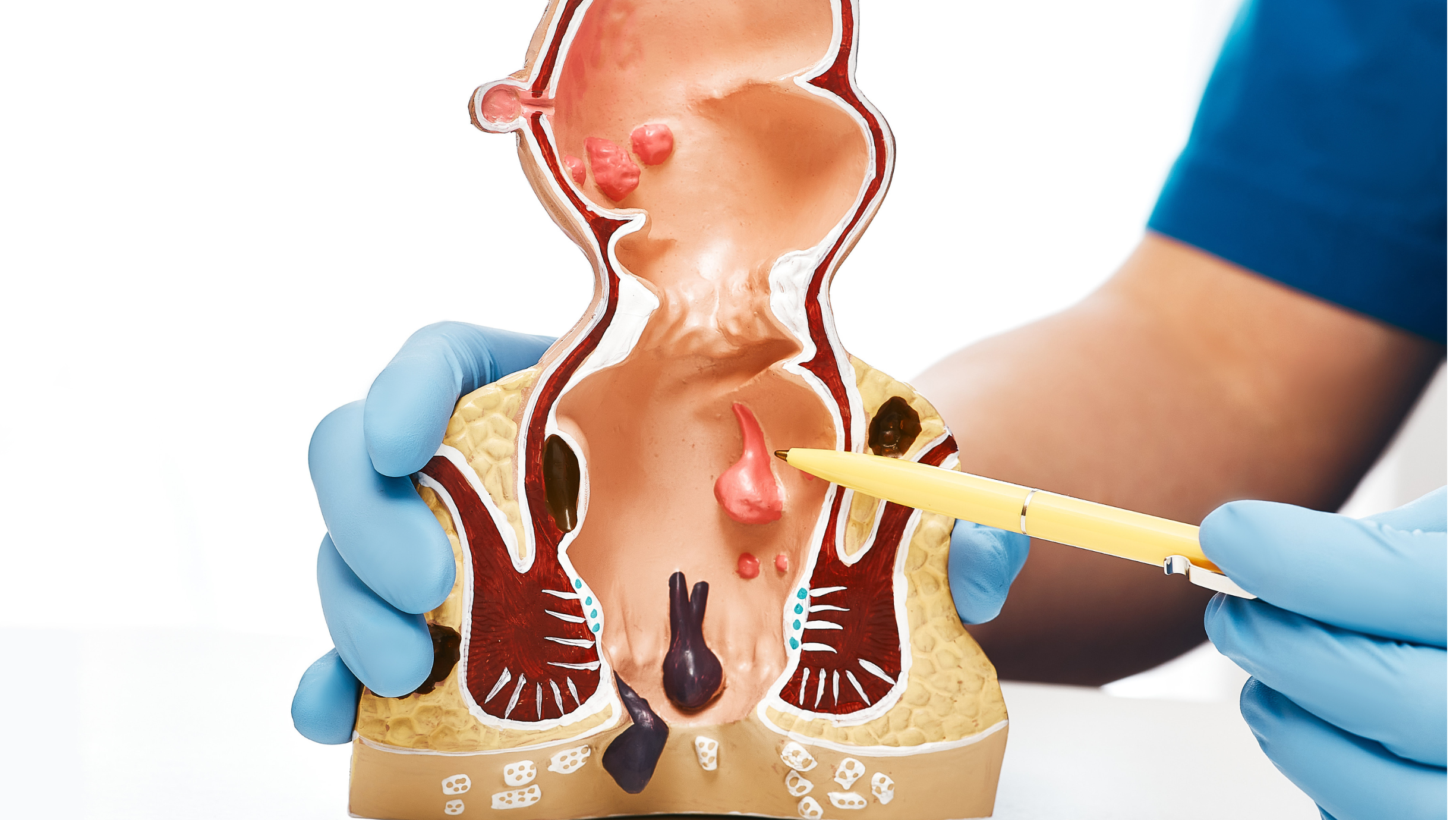An anal fistula is a small tunnel that develops between the end of the bowel and the skin near the anus (where poo leaves the body).
They’re usually the result of an infection near the anus causing a collection of pus (abscess) in the nearby tissue. When the pus drains away, it can leave a small channel behind. Anal fistulas form when an anal abscess, that’s drained, doesn’t heal completely.
Anal fistulas can cause unpleasant symptoms, such as discomfort and skin irritation, and will not usually get better on their own. Surgery is recommended in most cases
– skin irritation around the anus
– smelly discharge from near your anus
– passing pus or blood when you poo
– difficulty controlling bowel movements (bowel incontinence) in some cases
– People who may have experience with recurring anal abscesses may have an anal fistula.
– See a Specialist if you have persistent symptoms of an anal fistula. They’ll ask about your symptoms and whether you have any bowel conditions.
Colorectal Specialist will need to examine your anus and gently insert a finger inside it (rectal examination) to check for signs of a fistula.
You may need further tests to confirm the diagnosis and determine the most suitable treatment.
These may include:
– a proctoscopy, where a special telescope with a light on the end is used to look inside your anus.
– an ultrasound scan, MRI scan or CT scan.
– Sometimes your surgeon will need to examine you in the operating room (called an exam under anaesthesia) to diagnose the fistula.
– If a fistula is found, your physician may also want to do further tests to see if the condition is related to Crohn’s disease, an inflammatory disease of the intestine. About 25% of people with Crohn’s disease develop fistulas.
Most anal fistulas develop after an anal abscess. You can get one if the abscess does not heal properly after the pus has drained away.
Less common causes of anal fistulas include:
– Crohn’s disease – a long-term condition in which the digestive system becomes inflamed
– hidradenitis suppurativa – a long-term skin condition that causes abscesses and scarring
– infection with tuberculosis (TB) or HIV
– a complication of surgery near the anus
The chosen treatment depends on the severity of your symptoms, your medical history, and the type of fistula. Each fistula is different in terms of the path it takes through the muscles in the anus (sphincter muscles). Some complex fistulas can have side branches as well as one main tract. It is important to realise that a fistula is often difficult to treat and sometime more than one operation is commonly needed to get a fistula to heal.
– The operation: Anal fistula operations are usually performed as a day-case procedure under a brief general anaesthetic, or a spinal anaesthetic (a needle into the back.)
Operation risks: All operations carry some degree of risk.
The main risks are:
– infection – this may require a course of antibiotics; severe cases may need to be treated in a hospital
– recurrence of the fistula – the fistula can sometimes recur despite surgery
– bowel incontinence – this is a potential risk with most types of anal fistula treatment, although severe incontinence is a rare one in 10 people may experience some degree of incontinence to gas and liquid (wet wind.)
Other Interventions
– Seton – This is a silicon-based loop which is inserted through the fistula to prevent recurrent abscess
– VAFFT- Video assisted Anal Fistula treatment (VAAFT) is a minimally invasive technique for complex Anal Fistulas to save the Sphincter damage even after repeated Procedures for recurrences are performed.
The choice of surgery will depend on things like where your fistula is located and the specific procedure you have.
Speak to the surgeon about the potential risks of the procedure they recommend
FIND A SPECIALIST
Find a specialist for your gut problem.
The Gut Clinic UK is a one of largest physician-led platform renowned for its exceptional Gut specialists in the United Kingdom. We take pride in our rigorous selection process for specialists, ensuring that only the most qualified and experienced professionals join our platform.
Our specialists actively engage with patients, providing them with clear explanations, answering their questions, and involving them in the decision-making process.

